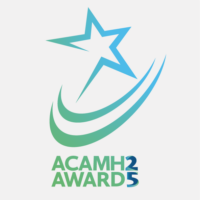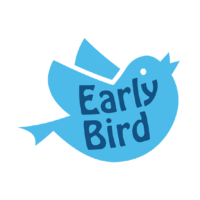Blog
-

Special Educational Needs and Young People Involved in Violence
Children and young people with special educational needs (SENs) are more likely to commit violent offences compared to those without SENs. Our research team used existing data from school and police records from over 1.5 million children and young people to unpack this relationship. The aim of our project was to identify what works to reduce violent offending and re-offending in children and young people with SENs.
Read more -

ACAMH Awards 2025
Join us for the ACAMH Awards 2025. It is completely free to attend and open to Members and Non-members alike.
-

Honouring Excellence in Peer Review – Peer Review Week 2025
As a part of Peer Review Week 2025, to show our gratitude for the ongoing support and service of our reviewers to the journals, and the wider scientific community, we want to extend a heartfelt thank you to all peer reviewers. We are proud to present the list of Top Reviewers for the 2024 calendar year.
Read more -

Enhancing Motivation in Adolescents With ADHD: Long-Term Insights From the STAND Trial
ADHD is a long-term condition that often continues into adulthood, bringing academic, social, and health challenges. A new community trial tested Supporting Teens’ Autonomy Daily (STAND), a programme that combines motivational interviewing with parent–teen collaboration and training in organisation, time management, and planning skills. The study found that STAND improved outcomes when delivered by licensed therapists, highlighting both promise and implementation challenges.
Read more -

Thank you to all our 2024 Reviewers
ACAMH wants to express our gratitude to every single reviewer from 2024 for their invaluable contributions to the JCPP, the CAMH journal and JCPP Advances, and the wider academic community as a whole. We are deeply appreciative of the time and effort required to provide detailed, thoughtful reviews. Reviews serve a vital function in the production of fascinating papers and exciting progress in the field of child and adolescent mental health.
Read more -

Understanding How Parenting Programs Work: Key Behaviour Changes and Individual Differences in Outcomes
A 2025 study by Sigurðardóttir and colleagues brings together findings from 14 European randomized controlled trials with 3,252 families, all evaluating social learning-based parenting programmes. The study examined in detail how these programmes can support the reduction of disruptive behaviours in children.
Read more -

Children and Adolescents with Single and Multiple Traumas Response to PTSD Therapy: New Insights from a Major Meta-Analysis
A 2023 meta-analysis led by Hoppen and colleagues examined whether children and adolescents with post-traumatic stress disorder (PTSD) benefit equally from psychological interventions, regardless of whether they have experienced a single traumatic event or multiple traumas (Hoppen et al., 2023).
Read more -

Parent-Child Interaction Therapy: What Makes Coaching Work?
A new study by Scherpbier et al. (2025) explores how therapists support parents in learning and using positive interaction strategies during Parent-Child Interaction Therapy (PCIT). Using 125 video-recorded sessions from 17 Dutch families, the authors applied lag sequential analysis to identify which therapist coaching techniques were most likely to encourage parents to use key interaction […]
Read more -

Autumn Webinar programme
Don’t miss the early birds! All events are centred around evidence-based research, and our speakers are some of the leading lights in the field. ACAMH is a charity, and we receive no government funding, nor do we ask for donations.
Read more -

Cognitive Behavioral Therapy for Insomnia in Teens: What New Research Reveals
A 2024 systematic review and meta‑analysis by Galgut and colleagues highlights that cognitive behavioural therapy for insomnia (CBT‑I) markedly improves insomnia severity and, to a lesser extent, subjective sleep quality in teenagers. These findings strengthen the evidence for offering CBT‑I—delivered face‑to‑face or digitally—as a first‑line treatment for young people who struggle to sleep.
Read more